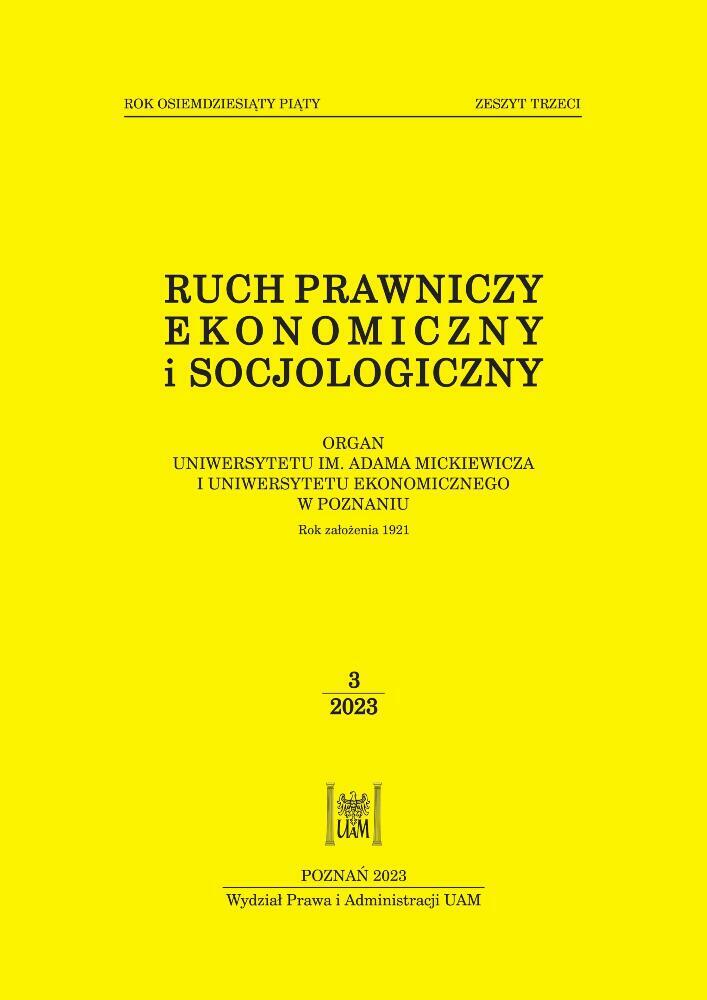ON WHY THE COURT DID NOT WANT TO FIGHT SMOG, OR SEVERAL COMMENTS ON THE RESOLUTION OF THE POLISH SUPREME COURT ON THE RIGHT
TO LIVE IN A CLEAN ENVIRONMENT
ON WHY THE COURT DID NOT WANT TO FIGHT SMOG, OR SEVERAL COMMENTS ON THE RESOLUTION OF THE POLISH SUPREME COURT ON THE RIGHT
TO LIVE IN A CLEAN ENVIRONMENT
Author(s): Agnieszka Bielska-Brodziak, Marlena Drapalska-Grochowicz, Marek SuskaSubject(s): Human Rights and Humanitarian Law, Sociology of Law, Court case
Published by: Uniwersytet Adama Mickiewicza
Keywords: right to live in a clean environment; personal interests; strategic litigation; climate change litigation; breakthrough in interpretation;
Summary/Abstract: The authors analyse the 2021 ruling by the Polish Supreme Court, which refused to acknowledge the right to live in a clean environment as a personal interest. The purpose of the paper is not only to evaluate the quality of the Supreme Court’s argumentation, but also to highlight the implicit prem- ises that were missing from the grounds of the decision. Based on these findings, the authors draw broader conclusions about the circumstances that increase the likelihood of pro-environmental (in- cluding pro-climate) court decisions and breakthroughs in interpretation. The authors use the latter term to describe the situation of challenging the previous, widely accepted interpretation of certain legal provisions, favouring a different interpretation that considers societal changes in values and beliefs. The authors evaluate the Supreme Court’s arguments and put forward the thesis that the construction of personal interests was not the primary reason for rejecting the recognition of the right to live in a clean environment as a new personal interest. The authors used two methods to search for the hidden premises of the Supreme Court’s resolution: (i) they examined the discourse supporting the rejection of the right to live in a clean environment as a personal interest, and (ii) they placed the resolution in its socio-political context. The authors identify four conditions that increase the likelihood of pro-environmental (and pro-climate) court judgments: (i) the condition of costs’ expediency, (ii) the condition of individualization of responsibility, (iii) the condition of respect for the judiciary and (iv) the condition of public support. The last two conditions apply to interpreta- tive breakthroughs in general, regardless of the subject matter.
Journal: Ruch Prawniczy, Ekonomiczny i Socjologiczny
- Issue Year: 85/2023
- Issue No: 3
- Page Range: 27-41
- Page Count: 15
- Language: English

